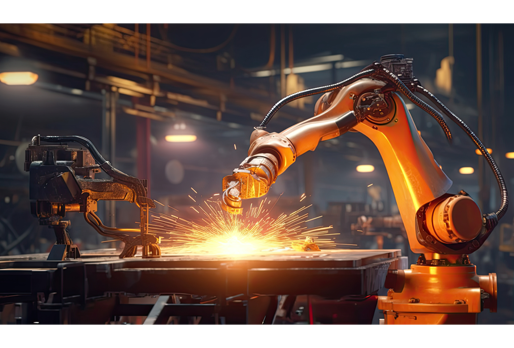India has the capacity to export goods worth $1 trillion by 2030 and is on the road to becoming a major global manufacturing hub. With 17% of the nation’s GDP and over 27.3 million workers, the manufacturing sector plays a significant role in the Indian economy. Continuous technological advancements like automation and Manufacturing 4.0 are further revolutionizing the sector.
The impacts are vast such as disruptive technologies reshaping roles, emerging skills gaps, and fierce competition for top talent across the industry. By 2030, an estimated 2.1 million manufacturing jobs could be unfilled if the skills gap is not adequately addressed. Closing this skills gap presents a critical opportunity for leaders, and it needs to be done swiftly.
To discuss the same Mint recently hosted round table of CHROs and L&D heads from the industry to discuss the Skill Readiness Paving the Road to Manufacturing 4.0.
Make your inbox more interesting.
Subscribe to our newsletterThe round table saw participation across different sectors including pharmaceuticals, conglomerates, chemical industries, oil and alloy manufacturer, textiles, cement, plastic, power, and heavy machinery.
While eluding towards the future skills perspective one of the leaders brought everyone’s attention to an intrinsic detail of the Manufacturing industry. Manufacturing inherently has always been technology driven. It is the biggest consumer of technological advancements starting from the first industrial revolution.
Hence, the manufacturing industry is undeterred from the advent of technology. It is all about the software part of adaptation which implies culture and change management.
One of the leaders from top Textile industry expressed that the leadership has started to embrace the change. However, the bigger challenge has been the pace of change in the technology itself. The adoption cycles are long and cost intensive, hence there lies the inhibitions of the leaders.
To mitigate this trend, there is a heightened need for human mind-set transformation. The advent of technology such as AI, ML, Robotics and so on and so forth has diluted the barriers to entry to any sector. The next new competition could come from unforeseen avenues. Hence, skill building needs to come closer to the industry. The skills training cannot be restricted to the white collared jobs and greater access to learning has to be created.
Further, the leader of a large conglomerate emphasised on the role of the middle management in manufacturing. The top brass have already warmed up to the idea of advanced skills training. However, the middle level management has to translate the new nuances to the shop floor. It has to encourage the blue-collared labours to embrace new technology. That training has to be in the language that they understand. As skills training is lacking largely in our formal education system, there continues a to be an inherent gap in the system.
While concluding the discussion a leader representing a Fortune 500 company highlighted the need for distinction between skillsets of the doers from drivers. Different skill-sets need to be inculcated for the middle management who are the drivers and a different set for the shop floor employee who are the doers.
With this regard, a leader from a heavy machinery company drew the attention towards the role of the industry itself in facilitating the above. He observed that this gap cannot be filled by educational institutions or large enterprise learning platforms alone. Industry itself has to become the educator and constitute learning academies which will be more versed with the real requirements.
On a concluding note all leaders agreed that the manufacturing industry faces a multitude of challenges when it comes to learning and development. However, addressing these challenges is essential for companies to remain competitive in an ever-evolving global market. By embracing technological advancements, bridging skill gaps, and fostering a culture of learning, manufacturers can empower their workforce to adapt and thrive in the dynamic landscape of modern manufacturing. Effective learning and development strategies will not only benefit individual employees but also contribute to the long-term success and sustainability of the industry as a whole.



